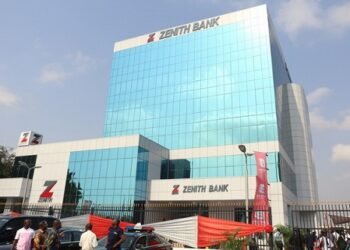The Consolidated Bank Ghana (CBG) has reassured its customers and the general public that the temporary suspension of its Foreign Exchange Licence (FEL) will not impact the bank’s core operations.
The announcement follows a directive from the Bank of Ghana (BoG) suspending CBG’s FEL for one month, effective November 26, 2024. Despite this setback, the bank emphasized that its full suite of regular banking services remains operational.
In a statement issued by CBG, the bank clarified that all branches and digital platforms continue to operate as usual, delivering a comprehensive range of services to customers. The suspension only affects foreign exchange-related products and services. The bank’s leadership has assured customers that the situation is under control and that efforts are being made to resolve the concerns raised by the central bank.
“We believe the concerns raised in the notice can be swiftly resolved and are committed to working closely with the Bank of Ghana to ensure compliance. We want to reassure our valued customers that this suspension does not impact CBG’s normal banking operations,” the bank’s statement highlighted.
CBG also expressed confidence in the swift resolution of the matter, indicating that it expects to restore foreign exchange services either after engaging with the Bank of Ghana or upon the expiry of the suspension period. The bank apologized for any inconvenience caused and reaffirmed its commitment to upholding high standards of compliance across all aspects of its business.
The Bank of Ghana’s Decision
The suspension of CBG’s Foreign Exchange Licence stems from regulatory breaches identified by the Bank of Ghana. According to a statement from the central bank, the decision is based on violations of several key regulatory guidelines: Foreign Exchange Market Regulations: CBG was found to have breached certain rules governing the operation of the foreign exchange market;
Inward Remittance Services Guidelines (November 2023): The bank did not fully comply with updated guidelines for Payment Service Providers handling inward remittances; Anti-Money Laundering/Combating the Financing of Terrorism (AML/CFT&P) Guidelines (December 2022): The Bank of Ghana cited non-compliance with regulations designed to combat money laundering, terrorism financing, and the proliferation of weapons of mass destruction.
In response to these violations, the Bank of Ghana invoked Section 11 (2) of the Foreign Exchange Act, 2006 (Act 723), which empowers the central bank to suspend or revoke the foreign exchange licence of a financial institution that fails to comply with market regulations. The suspension is set to last for one month, during which time CBG is expected to take corrective measures to address the regulatory concerns.
CBG has pledged to work collaboratively with the Bank of Ghana to resolve the identified issues and ensure full compliance with all regulatory requirements. The bank’s management reiterated its commitment to maintaining robust internal controls and regulatory adherence.
“We apologize unreservedly for any inconvenience this situation may have caused and reaffirm our dedication to maintaining the highest standards of operational compliance across all aspects of our business,” the statement added.
The suspension has raised concerns among customers who rely on CBG for foreign exchange services, especially businesses engaged in international trade. However, the bank’s assurance that regular banking services remain unaffected is expected to mitigate the potential impact on customers. CBG’s digital platforms and physical branches continue to offer full banking services, excluding only the foreign exchange transactions temporarily halted by the suspension.
The Bank of Ghana has indicated that the suspension is temporary and will be lifted once the central bank is satisfied that CBG has implemented effective controls to prevent future regulatory breaches. This period of suspension serves as an opportunity for the bank to review its internal processes and strengthen compliance mechanisms.
The central bank also used this occasion to caution all market participants to adhere strictly to the applicable foreign exchange regulations. The Bank of Ghana remains vigilant in enforcing the guidelines governing the forex market to ensure the integrity and stability of Ghana’s financial system.
READ ALSO: GSE Indexes Slip Slightly as CalBank and NewGold ETF Suffer Losses







